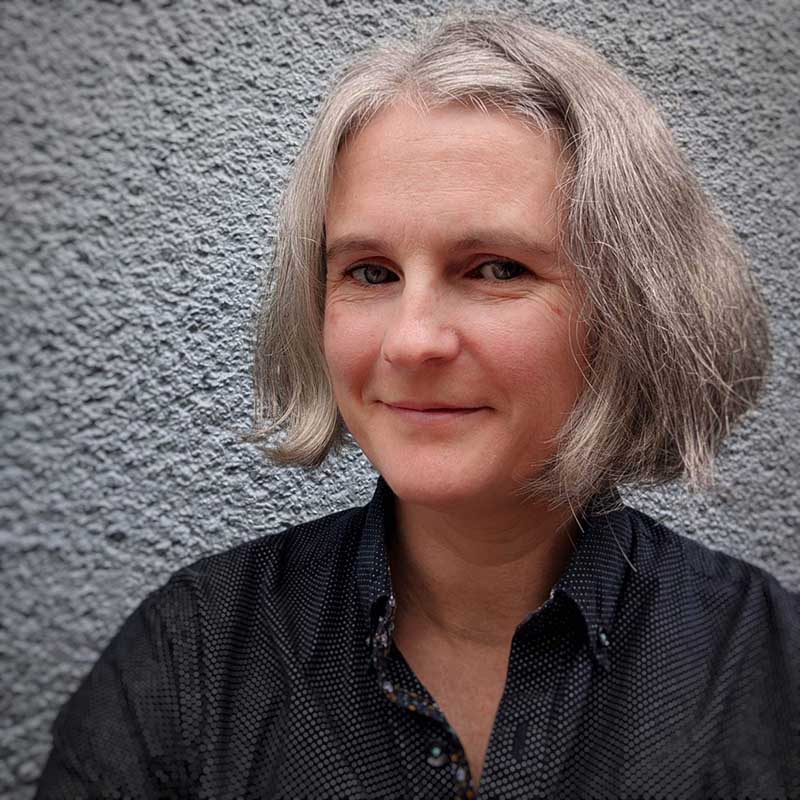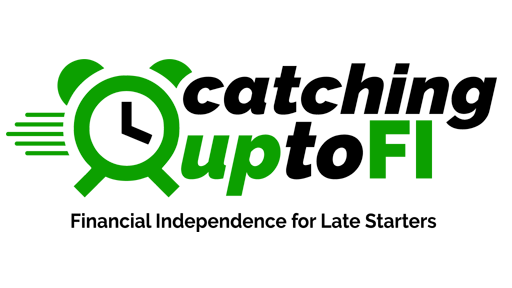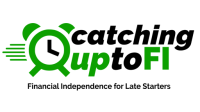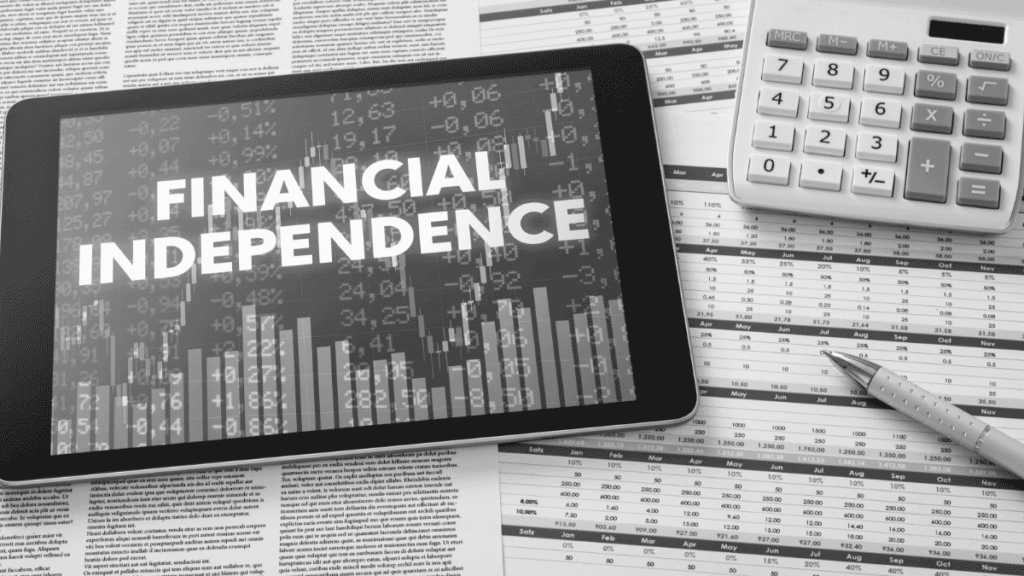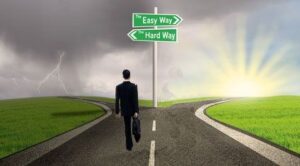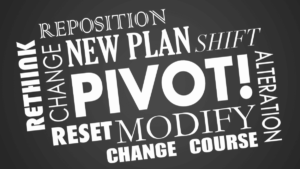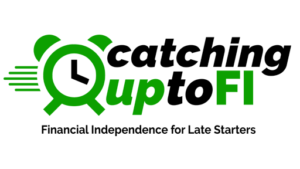I am an enthusiastic new follower of the Catching up to Fi, LLC podcast and am extremely interested in its success in making a difference for the mature “silent majority” (as Bill and Becky like to say!) I also hope to learn from the experiences of others at my stage of life.
I am a 51-year-old Canadian, from Vancouver, British Columbia. I’m a single mom of two lovely children aged 11 and 14. I am a CPA, although I’ll say up front (in my defense) I’ve never practiced in the areas of personal tax or small business. My experience is in public company audit and management services for the non-profit charitable sector. It does seem ironic, though, that a financial professional would find herself in mid-life with essentially no retirement or contingency plans.
In my early years my father was an entrepreneur and my mother a stay-at-home parent. My father had a high tolerance for risk and made a living as a property developer. He was an immigrant from England, the only child of a lower income single mother from Sheffield. He enjoyed the finer things in life. In good times he owned a Rolls Royce, a boat and multiple vacation properties. My father also fancied himself a player and this predilection combined with the spike in interest rates in the early ’80’s led to financial disaster: divorce and insolvency. My mother was left with three young children to raise and went back to school for her nursing credentials, working retail part time to make ends meet. On the side she bought, fixed and sold the houses that we lived in. While I did not receive any direct lessons in personal finance from my folks, they both modeled strong work ethic. Personal finance was not taught in schools when I was young. (The degree to which financial literacy is taught in public school now is still inexplicably low.)
I earned a bachelor’s degree in “Urban Land Economics” from the University of British Columbia. When I started school, I had hoped to eventually go into business with my father. Unfortunately, by the time I left the program he was retired and in due course diagnosed with Alzheimer’s disease. In my early 20’s I worked various different jobs trying to find myself. None were lucrative. Financial independence was the last thing on my mind. I did open a retirement savings account (the “RRSP” is the Canadian equivalent of a 401k) at the behest of my mother when I started my first full time job. However, I only contributed paltry sums. Instead, I leased a car which cost a small fortune and is certainly an expenditure I deeply regret.
During my late 20’s I started taking accounting classes at night school as I was working for an insurance company with the wonderful perk of paying for continuing education. I discovered that I really enjoyed the practical application of mathematics to management of resources. I also met my first husband, a dashing US naval officer. We married and I moved to Washington state where I finished my accounting classes at UW and passed the CPA exam. I found work as
a CPA at a boutique public practice that specialized in low income housing tax credit developments.
Unfortunately my new husband and I were both restless spirits and my starter marriage lasted barely two years. While my employer offered to sponsor me to stay in the States, I decided to return to Vancouver to be with my family. I had paid for my education at UW out of pocket, so fortunately did not have student loans, but it was expensive. I also had to buy another new car in the US as my Canadian model was not approved for use there. I returned to Canada with almost nothing to my name and gratefully took up residence in the basement of my aunt and uncle’s house.
My grandmother passed away and left a small inheritance. I also sold my engagement ring, which turned out to be ridiculously valuable. I used the proceeds to purchase a very small apartment on a busy road in Vancouver. I obtained work at a mid-sized public accounting firm and wrote the Canadian version of the CPA exam for a license to practice in British Columbia. Still, I paid almost no attention to my personal financial future. I totaled my car in an accident and had to replace it. Mortgage payments were priority and my home became my savings account. So it continued until my mid- 30’s.
In my mid-30’s I met my second husband. We both owned homes and sold them to combine our resources and purchase a family home. I left work when our first child was born and was a stay-at-home mom for 5 years. I went back to work part time when our second child was two years old. I made small contributions to my retirement account, but only sporadically and I never paid attention to the account’s composition or balance. All these years my retirement savings were in high fee bank mutual funds, the value of which was decimated during the GFC. My husband pays into a government defined benefit pension, so he was never concerned about saving for retirement. We also saw the house as our primary savings vehicle and it was considered relatively safe given the desirability of the west coast location.
As a couple our extravagances were primarily a nanny for the children (so that I could work part time) and a private sports club membership. I also bought a Mercedes Benz. While having the nanny allowed me to keep up my CPA license, it was outrageously expensive. My spouse and I never discussed money or financial goals. My husband believed we would stay in the family home the rest of our lives, pay it off and eventually his pension would provide for us both.
When I returned to work part-time I chose to go into the non-profit sector, as it offers the work/life balance I wanted to spend time with my family. Unfortunately, this balance comes at a financial price of lower wages than I would otherwise have made in public practice or the for-profit sector. Nonetheless, I’ve a great amount of professional pride and pleasure in helping charities manage their resources to achieve their mandates. It would have been wise if I had applied the same skills in managing my own finances as I applied to those of my employers.
After 11 years of marriage my second husband and I divorced in 2020. We sold the family home and each purchased a property within 2 blocks of each other. Fortunately we get along extremely well, just not as spouses. It is worth noting that Vancouver is an ultra high cost of living location. A starter single family home in Vancouver is about $1.6 millionCAD and I purchased the smallest, cheapest, oldest property in my children’s school district: a 1300 square foot mid-century rancher for a mere $1.295m. Almost all of my wealth was and is trapped in the house and of course I’m paying a mortgage.
Due to decades of outdated urban planning policies, the particular area we live in does not have many “middle-range” family housing options. People either live in a single family property OR they squish into a small apartment or condo. There is a dearth of in-between options such as townhomes or multi-plexes. With two children, the house was non-negotiable and freeing up resources by downsizing will not be possible until my children finish high school, at the earliest.
It was at this time, in the wake of divorce, that I realized I had precious little savings and needed to pay immediate attention to my financial future. I actually had absolutely NO IDEA how to build and steward my own investments. I asked my sister, who had built a sizeable portfolio of investments via a high paying job (and in lieu of owning real estate) for recommended reading. She suggested some books about low cost index funds. I embarked on an odyssey of intensive self-education on markets, investments and personal finance through reading and podcasts. I remember the market crash at the beginning of the pandemic and texting my sister a question: “Would this be a good time to rebalance”? Duh.
My journey is ongoing. Since 2020 I try to save half of my income. I live frugally, although I do not skimp on repairs to the house, food or activities and education for my children. The kids attend public school, but we ensure they can take whatever specialized programs that interest them. We take short local vacations, for which I save using a sinking fund and always pay cash. I drive a 2014 Toyota Matrix, a far cry from the lovely Mercedes I owned a few years ago. I know the FIRE movement loves to recommend leveraging all possible sources of income, but I find at this time of life I neither have the time nor energy to develop a side hustle or work a second job. I’ve increased my income by changing jobs, from a $60,000 part time position three years ago to a full time $100k+ position with a defined benefit pension now.
My investment style has evolved dramatically over the last three years. I’ve made up for years of disinterest with an overzealous degree of attention. I started during 2020 by converting my bank mutual funds into low cost index funds. I also adopted a percentage based diversification strategy of the kind recommended by Paul Merriman. I enjoy spreadsheets and managing the funds, so I do have several tiers to my portfolio structure. I am guilty of changing my percentage allocations too often. For example, when the central bank started raising interest rates in 2022 I sold my bond EFT’s and purchased money market funds. A true “buy and hold” saver would not have done this, but I don’t enjoy watching my portfolio’s value tank. I allow myself 5% for discretionary ideas, which are currently in a couple of individual stocks and inverse ETF’s. I don’t trade (much). I’ve built a spreadsheet which can automatically update the value of my portfolio every ½ hour, not that I look at it that often. For most people,
My investing style is probably not advisable; a target date fund and some small cap probably do the trick. However, for me it works because the complexity keeps me engaged. My glidepath provides a track to potential retirement in 5-7 years, IF I can release some of the equity in my house when my youngest graduates high school.
My biggest money mistakes:
- I didn’t set personal financial goals
- I didn’t prioritize saving over spending
- I ignored what little savings I did have while they stagnated in worst in class high cost mutual funds
- I didn’t take the time to form a relationship with my future self
No doubt buying cars and choosing lifestyle over income have been serious drags on building wealth, but it is really the above four errors that had impact. Over the last three years I’ve made amends:
- I have set monthly and annual savings goals and
- Scheduled out my potential retirement income and spending through to age 100 adjusted for taxes and inflation and
- have an annual spending plan for major expenditures (insurance, house repairs, vacations, retirement savings) and
- have an emergency fund (cash, not just a line of credit as before) and
- track my cash flow every month, forcing myself to live on what remains after savings are put aside
- I am still a work in progress and there are concerns yet to be addressed:
- What if my children need to live at home into their adulthoods? Based on the experience of my friends with older children, kids don’t launch until well into their 20’s these days and mine are only 11 and 14. I must be able to release some equity in my house to be able to retire. My current plan is to move to a (slightly) lower cost location in British Columbia and the kids can choose whether or not to accompany me.
- While I value my career, I have started feeling burnt out and my mental acuity is not what it used to be. I have considered returning to school for a degree in a different line of work in the hopes of extending my working life.
- My children’s dad is still working and in good health (he makes twice what I do, but is in his 60’s), but how will my plans have to change when he retires in the next year or two?
- What if I have medical issues and have to take time away from work? I am starting to notice that my peers are developing health issues and heart disease runs in my family.
I need to develop contingency plans which may necessitate working full time at my current career longer than I would like to; I don’t have “FU” money.
I continue my fervent exploration of all matters of investment and personal finance knowledge. Here are my favorite sources:
Books –
- The Education of a Value Investor (Guy Spier) This book spoke to me so authentically that I actually wrote Mr. Spier to thank him and he was such a gentleman as to mail a note back! Yes, MAIL. Not email!
- The Psychology of Money (Morgan Housel)
- Richer Wiser Happier (William Green)
There is also a podcast; the episode with Arnold Van Den Berg is particularly inspiring
- We’re Talking Millions (Paul Merriman)
Podcasts –
- Rational Reminder (Benjamin Felix & Cameron Passmore, check out the episode with Commander Chris Hadfield)
- Risk Parity Radio (Frank Vasquez)
- Afford Anything (Paula Pant)
- The Market Huddle (Patrick Ceresna and Kevin Muir)
FinTwit and “Inside Baseball with Old Chestnut” (podcast) are my guilty pleasures.
For me FIRE means “Financially Independent & Retiring Earlier” than I otherwise would have. I hope that many, many other mid-life folks experience a similar awakening to better their prospects. Perhaps their journey will start with an episode of “Catching up to FI, LLC”.
